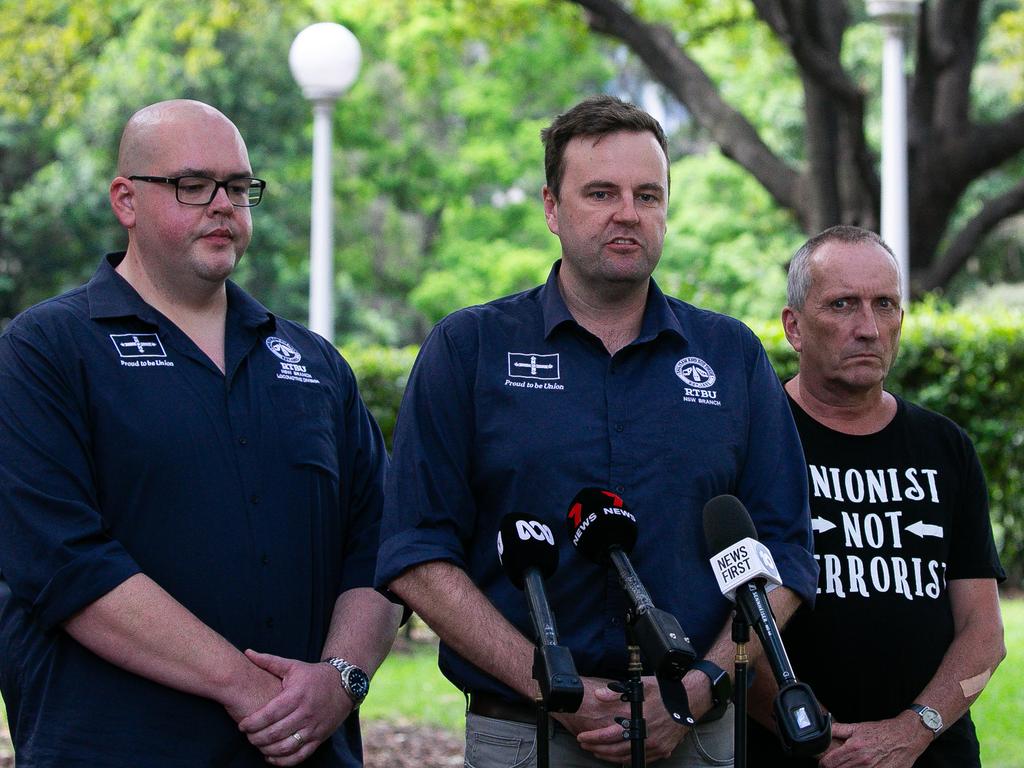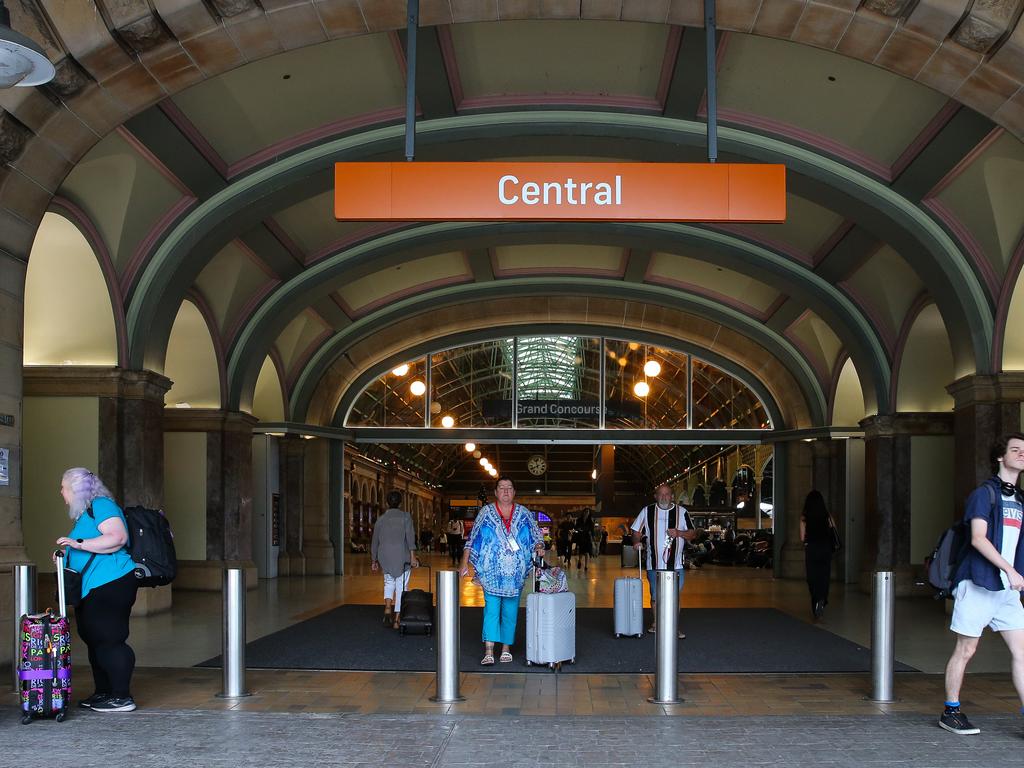Coal freight trains could grind to a halt if rail unions strike
Rail unions will be able to launch new strike action two days after Christmas, potentially throwing New Year’s Eve services into chaos and crippling the network’s busiest day of the year.
Rail unions will be able to launch new strike action two days after Christmas, potentially throwing New Year’s Eve services into chaos and crippling the network’s busiest day of the year.
The new strike threat comes amid a warning that the union industrial action could end up halting coal trains and impacting Sydney’s baseload power, while also causing “significant” parts of the network to shut down for weeks.
The Fair Work Commission yesterday agreed to a fast-tracked timeline for the Rail, Tram and Bus Union (RTBU) to take new protected industrial action, allowing it to go on strike from December 27.
Unions can only launch protected industrial action after holding a ballot with members, usually taking 10-15 days. The Fair Work Commission (FWC) yesterday agreed to shorten that time frame for the RTBU.
Government lawyers argued against the truncated process, telling the FWC that the application for a shorter ballot period was designed specifically to threaten rail strikes on New Year’s Eve.

The RTBU had begun the process of launching new strikes immediately after a last-minute court order cancelled bans that would have strangled the network this week.
Rail unions lost a bid to overturn that injunction yesterday, with a new court hearing set down for Monday. That hearing will consider whether or not the industrial action is legal.
The RTBU yesterday did not deny it was planning to strike on New Year’s Eve
“Rail workers are considering future protected action and nothing is off the table,” a spokeswoman said.
“However our preference is for the government to do the right thing and put forward an offer for workers quickly, so they won’t need to take any further action at all.”

Justice Nye Perram found that one form of the unions’ strikes had led to a spike in rail defects and caused assets to “fall out of compliance”.
The “signal blocking” bans had prevented 120 planned track inspections going ahead.
“If these bans continue it is possible that within two to three weeks, sufficient assets will be out of compliance that a significant number of rail routes will need to be closed,” Justice Perram said.
He said that the bans could disrupt freight services, including “10 trains carrying coal to power stations each day”.

“Within two to three weeks, the situation may be reached where the network fails and coal will not be able to be delivered to power stations in the middle of summer,” he said.
NSW Minerals Council CEO Stephen Galilee said any disruption to trains carrying coal could lead to power shortages.

“Coal-fired power plants continue to provide around 70 per cent of NSW power, so any disruptions to the coal deliveries will potentially impact electricity supply at a time when demand is high,” he said.
Premier Chris Minns yesterday said the injunction preventing strike action had saved “millions” of commuters from being inconvenienced and ensured businesses could keep operating in the lead-up to Christmas.





